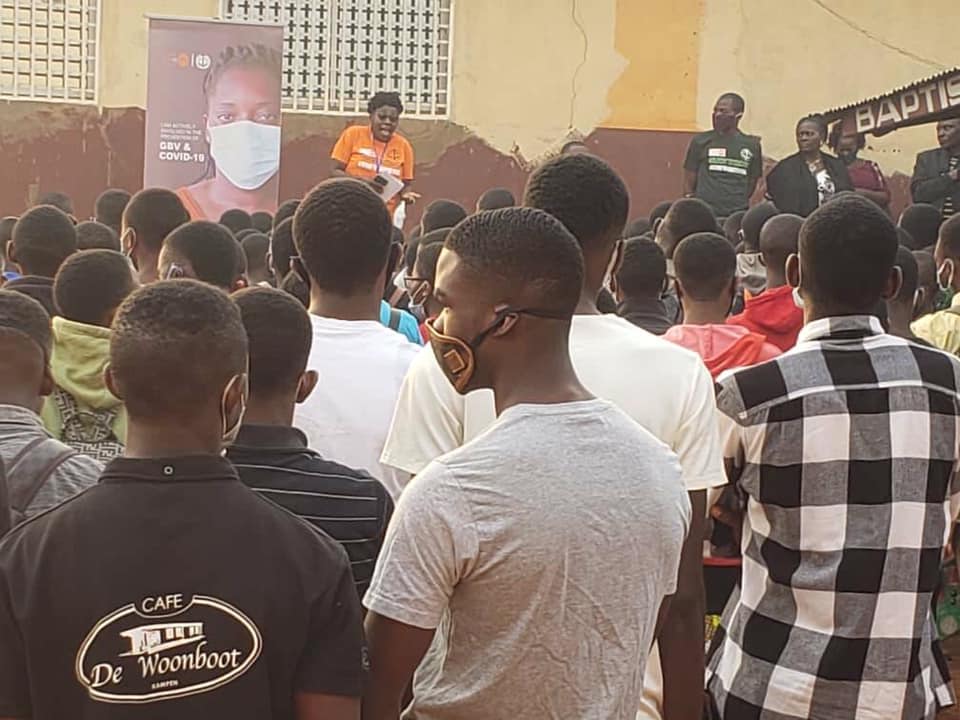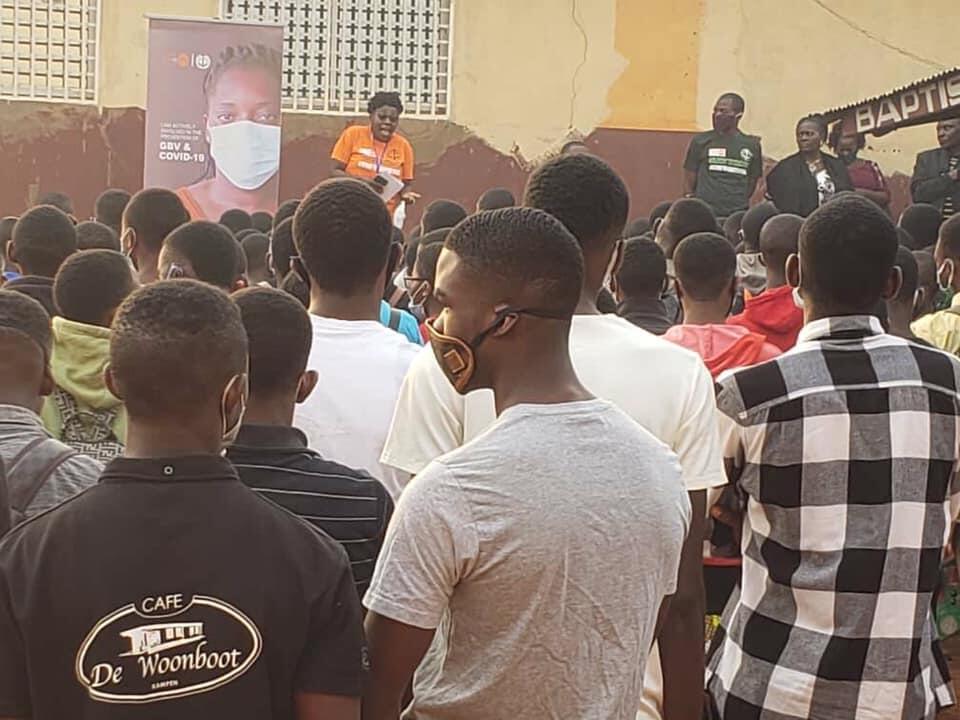The United Nations Population Fund (UNFPA) and the Ministry of Public Health launched a month-long Adolescent Sexual Reproductive Health (ASRH) sensitisation Campaign for the North West and South West Regions on February 16th 2021. This was done at the Baptist Comprehensive High School in Nkwen under the World Bank Pandemic Emergency Financing Facility (PEF) Project. The objective of this campaign is to reduce preventable maternal deaths as well as provide age-appropriate information on sexual and reproductive health to youths and adolescents in a COVID-19 and humanitarian crisis context.
This ASRH sensitization campaign is intended to empower adolescents with information and services on sexual and reproductive health including family planning to protect them from sexual violence, sexually transmitted diseases and early pregnancy. Thanks to this information, it is expected that they are able to speak out against and challenge negative social norms that may harm their Sexual Reproductive Health and Rights (SRHR) and as such become change-makers, able to achieve their full potential.
The PEF Project has as objective to contribute to the control of the COVID-19 pandemic in Cameroon by stopping the spread and control its related morbidity and mortality in the

Comprehensive High School, Nkwen.
North-West and South-West Regions. To achieve this, various UN agencies are involved, among which UNFPA that delivers by ensuring the continuity of reproductive health care and the protection of health personnel to the COVID-19 as well as addressing Gender-based Violence in 20 health districts of the North West and South West Regions. Hence, the purpose of reaching out to youths and adolescents, unable to access both basic education and health care services, for the most, making them vulnerable to uninformed and harmful sexual activity. As it is, investing in adolescent sexual and reproductive health in the early stages of an emergency can reduce maternal mortality, mitigate vulnerability to unwanted pregnancy, and improve health and development outcomes.
The ongoing socio-political crisis in the North West and South West Regions as well as the outbreak of the COVID-19 pandemic has drastically reduced access to essential sexual reproductive health care for many in these regions. While the one has led to the destruction of many health infrastructures and caused the displacement of many to hard-to-reach areas, the latter caused a rising reluctance of persons to visit health facilities for fear of contracting the disease. This caused a tremendous drop in the number of persons, especially women and girls, having access to services for the prevention, care and treatment of diseases.


